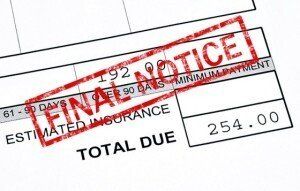(Schaumburg Office – Main Office)
Call Now!
(847) 843-8600
What Happens When You Pay Taxes Late?
If you pay your taxes late, you may have some penalties to pay, but it’s unlikely your life – or business – will be turned completely upside-down as the Internal Revenue Service (IRS) seeks to take everything you own.
Mistakes happen, and sometimes financial problems exist that make it impossible to pay the IRS what is owed. Fortunately, there are a few things you can do that will reduce the number of hassles you may experience in filing your taxes late.
Here are a few important tips to follow to make sure your penalties and fees are as low as possible.

Don’t File Your Taxes Late Because You Can’t Pay
The most important part of filing taxes is filing them on time. It’s not necessarily paying them on time. The IRS charges a larger penalty when you fail to file your taxes than when you file your taxes and don’t pay what is owed.
The IRS shares on its official website:
“The failure-to-file penalty is generally more than the failure-to-pay penalty. You should file your tax return on time each year, even if you’re not able to pay all the taxes you owe by the due date.”
According to further information from the IRS, you’ll pay 5 percent of the unpaid taxes each month that the tax return is late. On the other hand, the penalty for failing to pay is 0.5 percent of the amount you owe the IRS
Getting Penalties Waived When You Pay or File Late
As long as you’re not a habitual offender when it comes to filing your taxes late or paying late, you might be able to get your penalty waived.
The Internal Revenue Service shares further:
“You may qualify for administrative relief from penalties for failing to file a tax return, pay on time, and/or to deposit taxes when due under the Service’s First Time Penalty Abatement policy.”
In order to qualify for the administrative waiver, you must have filed your returns on time and have incurred no penalties in each of the last three tax years. You must also have filed all of your required tax returns, as well as paid or entered payment arrangements for all taxes currently due.
The IRS charges interest on its penalties and fees, but if you are able to qualify for a waiver on your fee, you might be able to have the interest reduced or removed when the penalty is forgiven. However, if any balance remains for what you owe the IRS, you’ll accrue interest until the entire amount owed is paid.
Are You Dealing With Tax Problems and the IRS?
Would you like assistance from an experienced legal professional with experience in tax & IRS issues? Contact Suburban Legal Group for assistance with all matters relating to the IRS and your taxes. A consultation is the first step.
DISCLAIMER: All information on this website is provided for informational purposes only and is not intended to be construed as legal advice. Suburban Legal Group PC shall not be liable for any errors or inaccuracies contained herein, or any actions taken in reliance thereon.
This is a subtitle for your new post


















